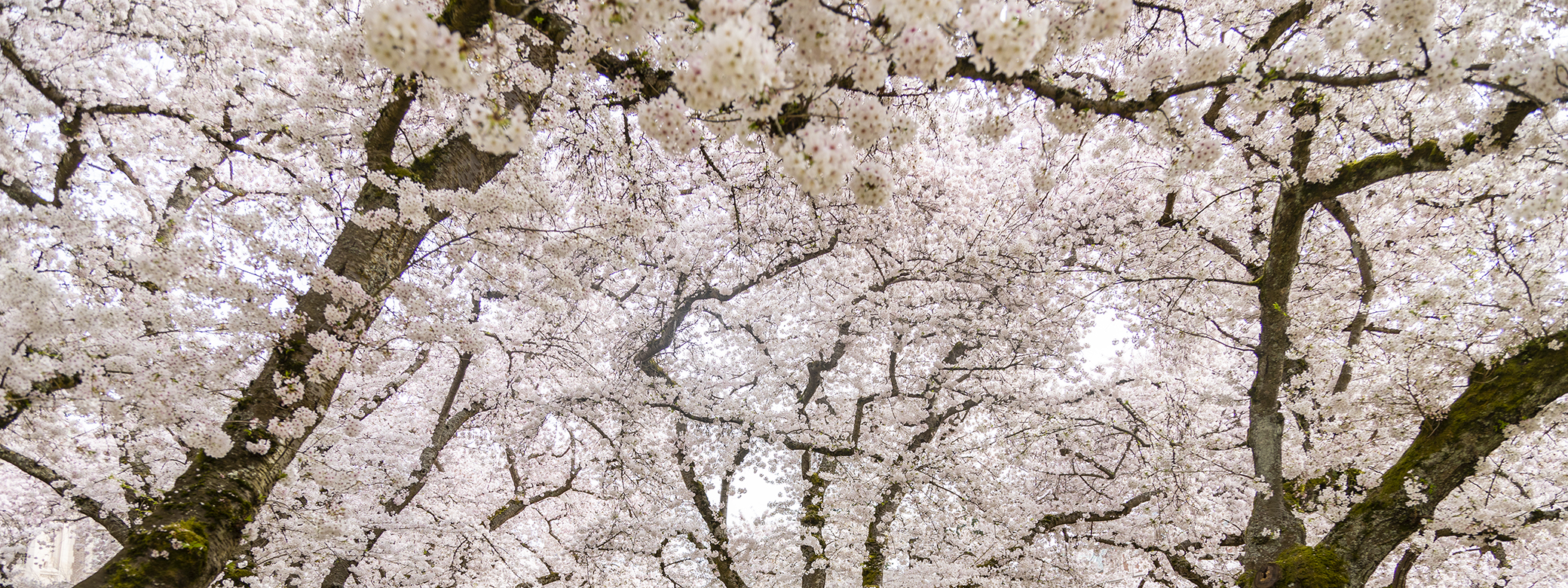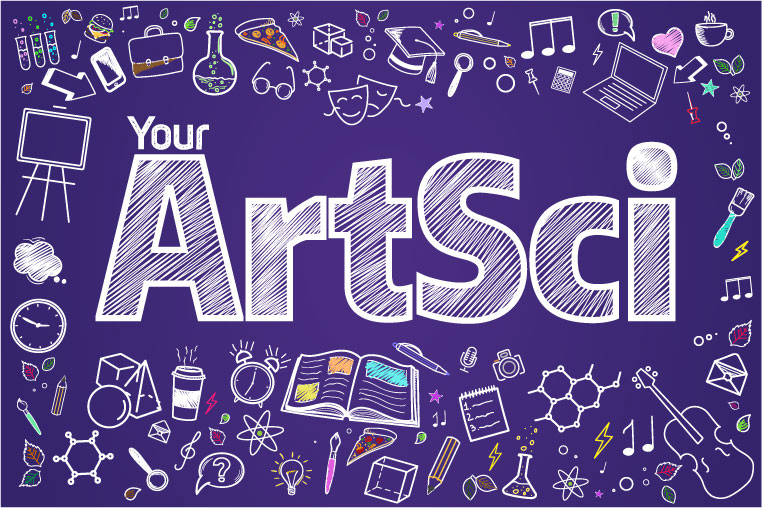
As you start thinking about spring quarter 2022 course registration, check out these unique Arts & Sciences offerings. They’re open to all students, have no prerequisites, and fulfill Areas of Knowledge requirements as noted.
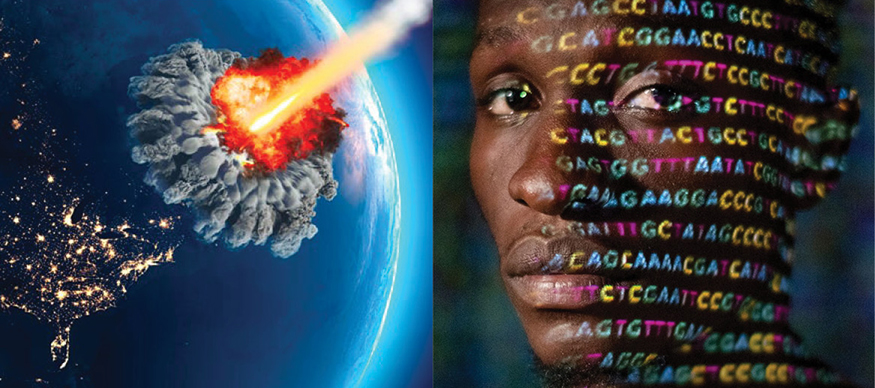
Science, Technology & Society
ASTR 216: The Impact Threat to Earth
Earth has been hit by large rocks in the past and will be hit by such rocks in the future. This course explores the history and future of impacts on Earth, why and how often we are hit, the scale of the material that hits us, and what can we do about it.
Chris Laws (Astronomy)
3 credits, NW
AFRAM 498 A: Science, Technology, and Race/Racisms
What does genetic ancestry tell us about race? Is there a racist brain? Are there racial dangers lurking in our algorithmic codes and everyday Google searches? We will explore how scientific practices and technologies can shape, remake, and challenge social understandings of race and racism.
Oliver Rollins (American Ethnic Studies)
5 credits, I&S
CLAS 314: STEM in the Ancient World
Examine science, technology, engineering, mathematics, and medicine in the cultures of Greece and Rome from the late Bronze Age to early Roman Empire — and get firsthand experience building ancient technology.
Sarah Stroup (Classics)
5 credits, I&S, VLPA
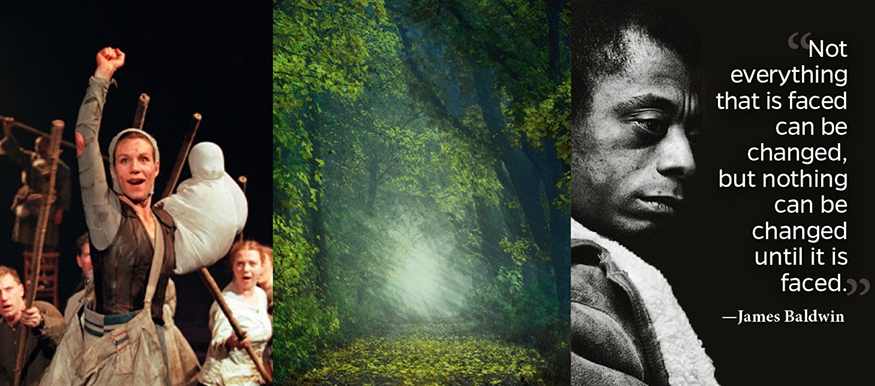
Social Change & Environmental Justice
DRAMA 270: Survey of Great Theatre for Social Change
Learn about socially and politically impactful plays that have shaped and changed the world around us, with emphasis on race and methodologies of social change.
Odai Johnson (Drama)
5 credits, VLPA
HSTAA 353: Class, Labor, and American Capitalism
Covering themes of work, class, and labor movements, along with the history of American capitalism, the course will explore the many faces of organized labor and American radicalism -- and seek to understand what is said to be America's unique hostility to class-based ideologies and organizations.
James Gregory (History)
5 credits, DIV, I&S
GEOG 272: Geographies of Environmental Justice
Think through social constructions of nature, equity, and justice: where we live, where we play, and where we work. This course looks at the role of markers of difference — gender, race, nationality — in debates around equity and justice.
Sam Kay (Geography)
5 credits, DIV, I&S
CHID 250 A: The Literature of Environmental Justice
Listed as Special Topics: Introduction to the History of Ideas
Explore the connections between environmental degradation and social injustice through environmental justice literature. Questions include: Is environmentalism a politics of the privileged? Should it address issues of gender, race, sexuality, disability, geographical agency, religion, socio-economic class, and more?
Lubna Alzaroo (English)
5 credits, I&S
SOC 240: Introduction to Social Psychology
What does it mean to live in a society? How can we understand our individual identities and who we are in relation to others? This course will examine the relationship between individuals and the larger social systems in which they are embedded, and explore how inequality is created, reproduced, and resisted.
Jelani Ince (Sociology)
5 credits, I&S
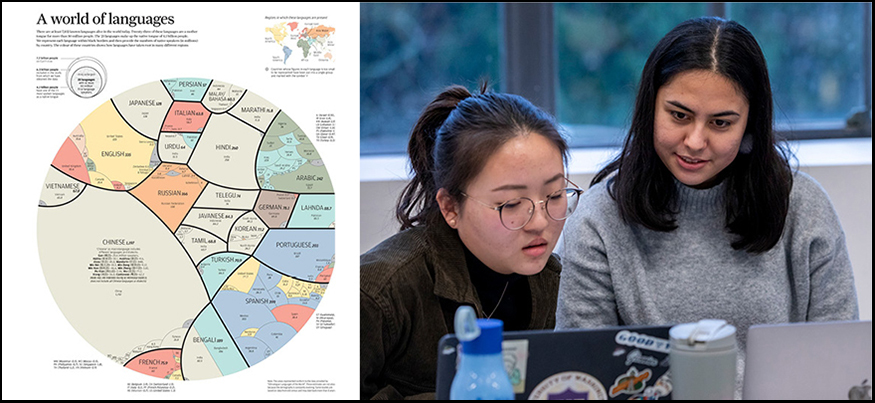
Effective Communication
DRAMA 261: Acting Tools for Professional Presentation
Through physical, vocal, mental, and emotional warmups, students will identify their own personal values and approaches to being a professional communicator in any communication setting — and gain confidence in public speaking.
Catherine Madden (Drama)
5 credits, VLPA
DESIGN 250: Visualizing Ideas
We live in a visual world. Everyone should know and understand how to communicate through design. Learn the principles inherent to the discipline of visual communication design, including the fundamentals of composition, typography, color theory, storytelling, and image-making.
Annabelle Gould (School of Art + Art History + Design)
3 credits, VLPA
Calderwood Seminars in International Studies
Write to make a difference in the world. Learn how to write for the public. Through Calderwood Seminars, students learn to translate academic knowledge for a broad public audience — a skill useful for any career. Course options include:
- Rethinking US Foreign Policy (JSIS 498 C, Daniel Bessner)
- Border Stories: Migration, Mexico and the US (JSIS 498 E, Tony Lucero)
- Writing about Indigeneity for a General Public (JSIS 498 D, Jonathan Warren)
- Global Cities: Representing Seattle Locally, Nationally, Globally (JSIS 498 B, Anand Yang)
- Beyond the Cartels: Communicating Casualties of the War on Drugs (JSIS A 492A, Vanessa Freije)
All Calderwood Seminars above are 5 credits
I&S, W
LING 233: Language and Diversity
We transfer information through language, but we also deliver key social messages about who we are, where we come from, and who we associate with, sometimes with just a single word. We judge each other’s values, background, and status through language too. Explore the intersectionality between language, society, diversity, and identity, and the nuances of language contact, spread, variation, and loss.
Lorna Rozelle (Linguistics)
5 credits, DIV, I&S
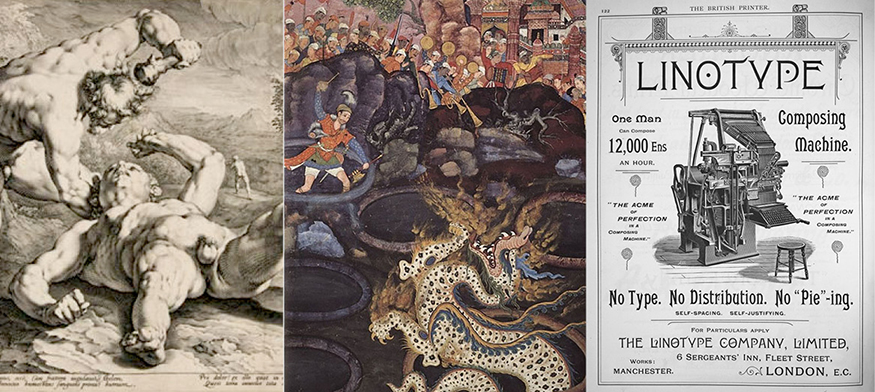
Literature
GERMAN 298 A: Sibling Rivalries: From Cain and Abel to “Whatever Happened to Baby Jane”
Listed as Topics in Literature and Culture
Across the globe and the centuries, the love between siblings often devolves into hate, adoration, rage, and jealousy. Is sibling rivalry inevitable, always destructive, and only an expression of animus and not love? What responsibilities do we have toward blood relatives or adopted siblings? Readings include Sophocles, Edgar Allen Poe, Toni Morrison, and Robert Aldrich.
Richard Block (German)
5 credits, VLPA, TBD
TXTDS 224 A / FREN 224 A / JSIS A 224 A / HSTEU 290 B: Print, its Impacts and Legacies: Lessons from a Modern Communications Revolution
Listed as Histories and Futures of the Book, Texts, and Reading
The development and spread of print technology in 15th century Europe was a communications revolution with major impacts on life, culture, religion, society, and politics. This course offers a broad history of the modern world through the lens of transformations in media technologies, and includes a visit to UW Libraries Special Collections to study early printed books form the 16th-18th centuries. Geoffrey Turnovsky (French & Italian Studies)
5 credits, I&S, VLPA
ASIAN 207 A: Fairies, Genies, and Monsters: The Romance in India
Listed as Special Topics in Literature and Culture of Asia
Learn about the romance (long adventure narrative) genre — one of the most popular genres today, full of fantastic adventures, supernatural encounters, and brave heroes. We’ll read and compare the most famous example from India with The Hobbit.
Jennifer Dubrow (Asian Languages & Literature)
5 credits, I&S, VLPA
GWSS 445: Feminist Science (Fiction) Studies
This course addresses science fictional narratives to trouble and transform the human, the inhumane, the scientific apparatus, and the natural world. Students will examine gender, race, sexuality, and ability, alongside scientific documents and feminist theory, to better understand both science and fiction through feminist lenses.
Regina Lee (Gender, Women & Sexuality Studies)
5 credits, I&S, VLPA
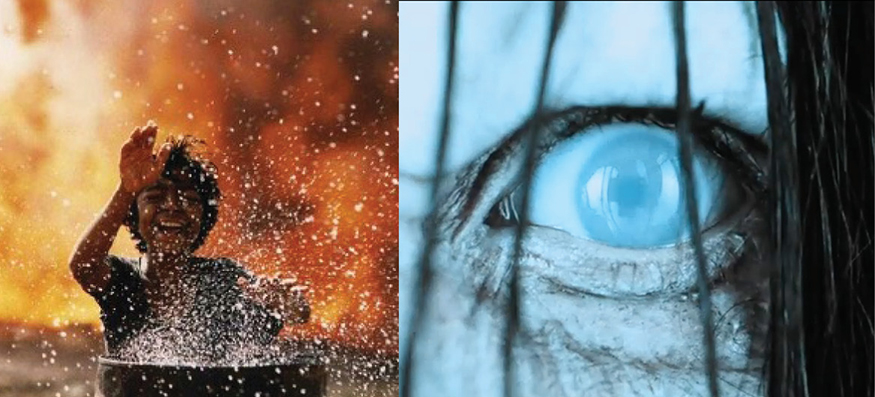
Film
FILM
CMS 272: American Nightmares — Histories of the Horror Film
Listed as Perspectives on Film: Genre
The creatures that populate horror films might seem scary. But the true subject of the genre is the struggle to recognize all that a culture represses or oppresses. This course traces the queer, feminist, racial, and de-colonial struggles that haunt the long history of this popular film genre, while scrutinizing the audio-visual techniques through which cinema generates meanings as well as feelings.
Jennifer Bean (Cinema & Media Studies)
5 credits, VLPA
NEAR E 386: The Middle East through Cinema
This introduction to Middle Eastern cinema will focus on Iran's cinematic production. Iran is a place often spoken about but rarely heard from. We'll reverse this trend by watching an exciting selection of award-winning films from Iranian cinema.
Nagmeh Samini (Near Eastern Languages & Civilization)
5 credits, VLPA
POLSH 320 / CMS 320 B: Cinematic Metamorphoses: Polish and American Cinema after 1989
Compare the most interesting Polish films from the last three decades with American films from the same period, considering the importance of historical, political, and social context for the creation of films. We will discuss global and local patterns within and across film genres, covering both blockbusters and arthouse favorites.
Dawid Junke (Visiting Fulbright Scholar, University of Wrocław, Poland)
5 credits, I&S, VLPA
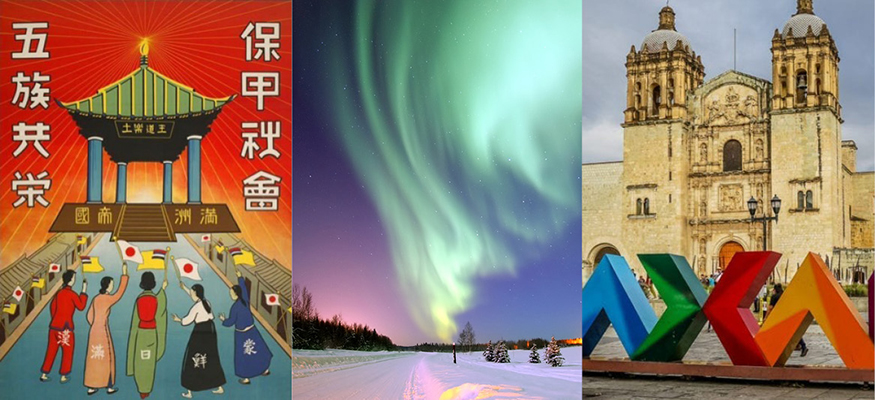
The World
SPAN 206: The Cultures of Oaxaca
This introduction to the Mexican State of Oaxaca covers topics including history, gender identity, religious syncretism, cuisine, music, and Indigenous resistance to cultural homogenization.
Jorge González Casanova (Spanish and Portuguese Studies)
3 credits, I&S, VLPA
HSTAS 432 / JSIS A 432: History of the Japanese Empire
Explore the history of the Japanese empire, the only non-Western empire in the modern era. Learn how and why this past continues to shape East Asia today. We will unpack the complexities of the Japanese empire, paying close attention to the experiences and perspectives of colonized societies. Key themes will include power, race, gender, and national identity.
Hajin Jun (History, International Studies)
5 credits, I&S
ARCTIC 391 / JSIS B 391 / HONORS 391: Climate Change - An International Perspective: Science, Art, and Activism
Understand the science of climate change in a socio-political context. What is the role of art/activism in communicating about climate change? Arctic nations are increasingly important players on the international scene, and this course examines key contemporary issues around climate change with an Arctic lens.
Robert Pavia (Marine & Environmental Affairs)
5 credits, I&S, VLPA
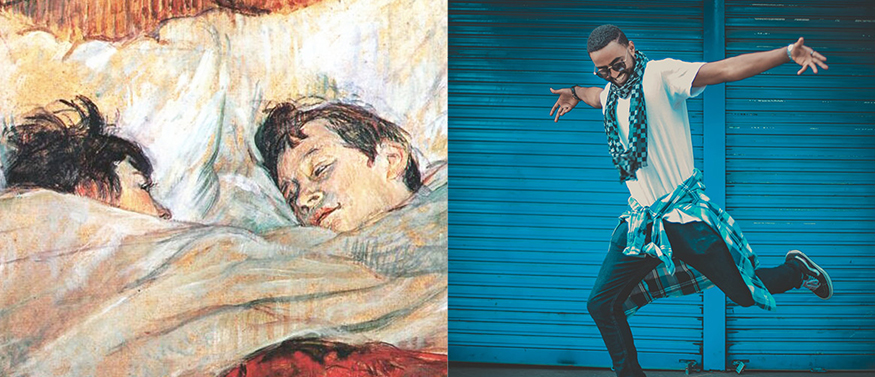
Let's Get Physical
PSYCH 210: Human Sexuality
Explore the biological, psychological, and socio-cultural determinants of human sexuality and sexual behavior! Topics include cultural appraisal of sexuality and sexual health, among others.
Nicole K. McNichols (Psychology)
5 credits, DIV, I&S
DANCE 244 B: Commercial Dance
Listed as Movement Practices: Special Topics
Learn all the basic moves of commercial dance styles and how they draw on the aesthetics of traditions that originated in African American and diaspora communities.
Gary Champi (Dance)
2 credits, VLPA
More Stories
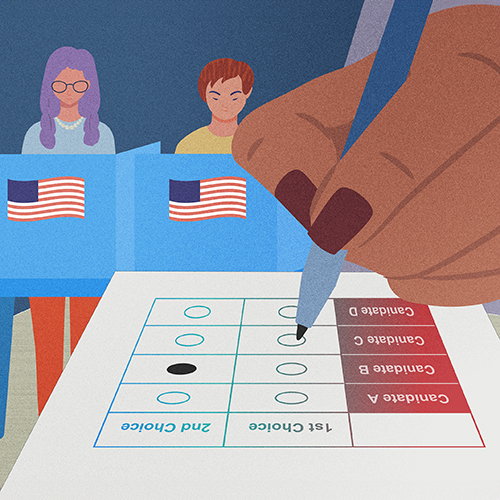
Democracy by the Numbers
Mathematics and Democracy, an undergraduate mathematics course, explores the role of math in many aspects of democracy, from elections to proportional representation.
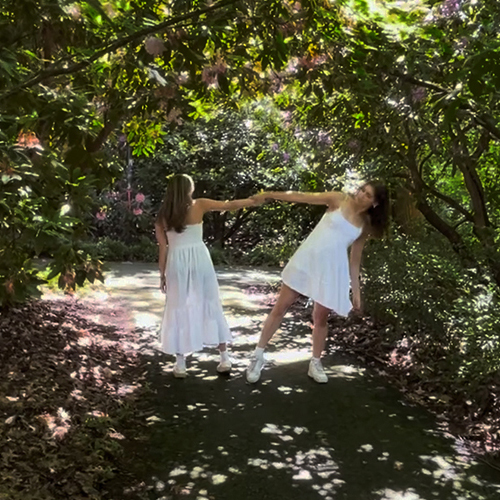
Dancing Across Campus
For the dance course "Activating Space," students danced in public spaces across the University of Washington's Seattle campus this spring.
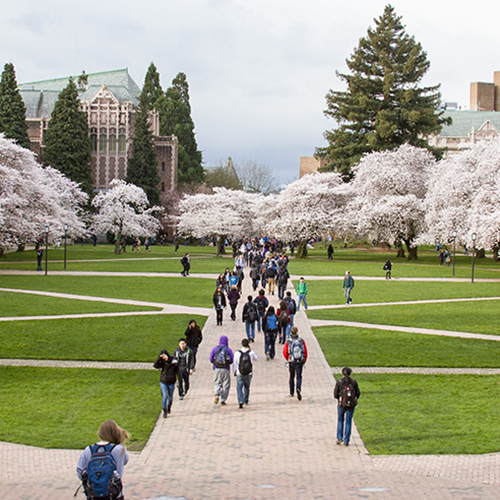
Four Students Shine as 2024 Dean's Medalists
Meet the four new graduates honored as College of Arts & Sciences Dean's Medalists for 2024.
